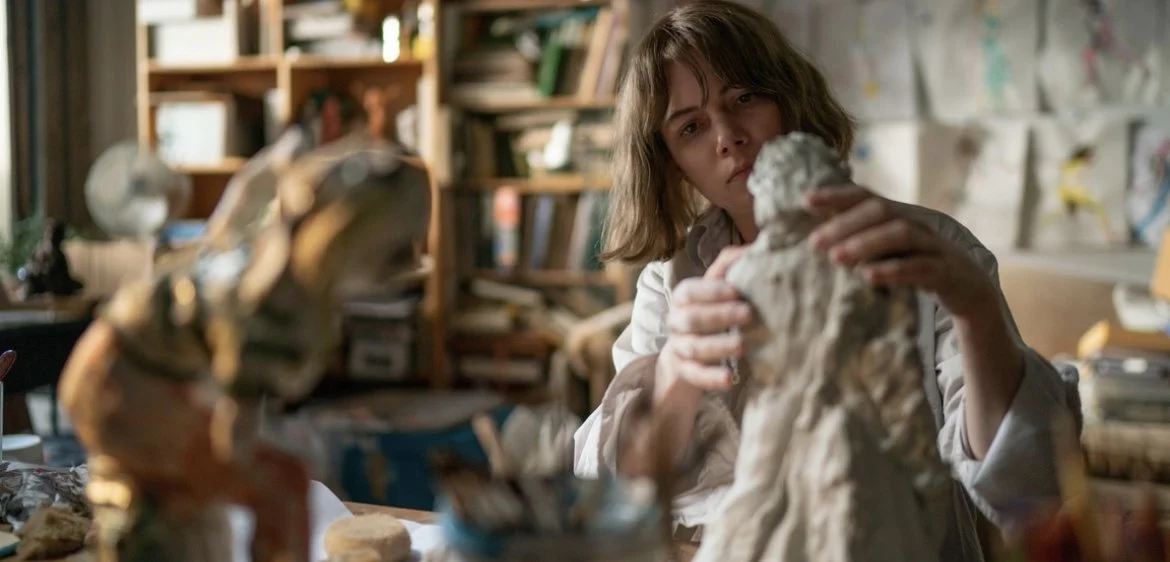It took me a while to finally write about Kelly Reichardt’s “Showing Up.” The film stars Michelle Williams and premiered at Cannes last May. It then screened at the New York Film Festival in October.
I left Cannes the day “Showing Up” was supposed to screen, which was the final day of the fest. I really wanted to catch Reichardt’s latest, but it’s had a fairly low-key journey since Cannes. There have really been not too many screenings for it until these last few weeks.
I finally caught up to it this past month and it’s a a very minimalist and subtle affair — albeit, a very playful one. “Showing Up” will not break out like Reichardt’s previous film, 2020’s “First Cow,” and that’s alright.
Williams plays Lizzy, a sculptor preparing to open a new show, in just a few days, who must balance her creative life with the tiny dramas of family and friends. That includes her mentally unstable brother, a loosely goosey neighbour/landlord (Hong Chau) and her eccentric retired father (Judd Hirsch).
It’s really that simple of a story. Reichardt shoots it with a goal for atmosphere and character. It’s quite something the way she lets it all play out, in very slow fashion, letting the events transpire as they may and patiently letting Lizzy evolve as an artist before our very eyes. If anything, “Showing Up” is about the ups and downs of making art.
I don’t think I’ve disliked a single one of Reichardt’s seven films. Her minimalist-realist style might turn off some viewers, but it goes along with how Reichardt describes her films as "just glimpses of people passing through.”
There are plenty of long takes, minimal dialogue and minimalist action. The characters in her films live on the fringes of society and here you can smell the Oregon art world being depicted, the almost hippie-like tackling of artists consumed by art. These characters don’t have a net, they are literally living for art and unconcerned about materialistic things such as money and a cozy home.
Michelle Williams, coming off her Oscar-nominated turn in “The Fabelmans,” teams up again with Reichardt, this is their fourth film together. Williams’ performance here feels lived-in and filled with these sorrowful quirks — her Lizzy looks like she’s had no sleep for months, consumed by her art and annoyed by the distractions around her.
It’s an accumulation of small moments that climaxes with an amusing art gallery reunion of all the characters we’ve met throughout the film. It turns out to be Reichardt’s most playful film, an amalgam of art that manages to, unlike it’s main characters, not take itself so seriously. [B/B+]






